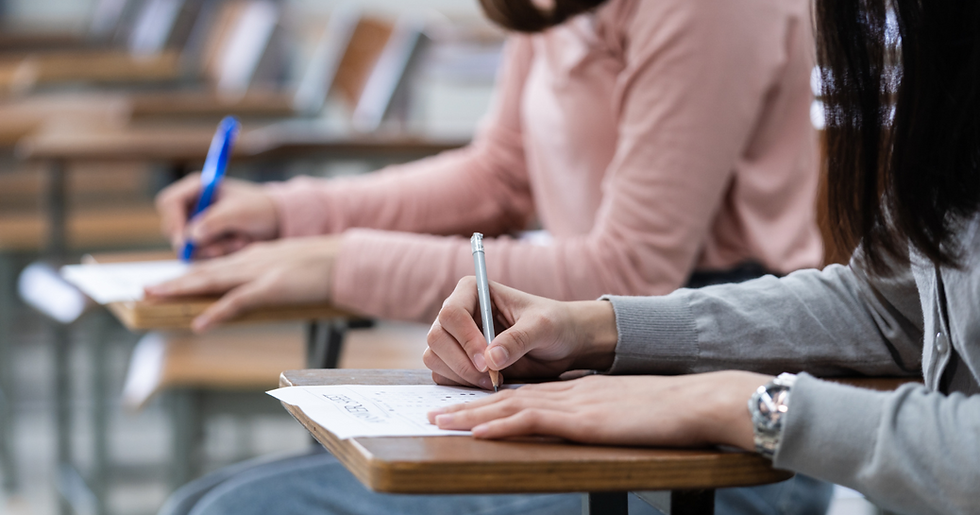5 Ways to Enhance Your Memory
- Ottawa Tutoring
- May 16, 2021
- 3 min read
How good is your memory? In addition to comprehension, memorization is one of the most important aspects of studying, achieving good grades and utilizing your learned skills. That's why we've outlined 5 study skills you can easily implement that will help you maximize your memorization abilities and allow for easier recall when writing a test or exam.
Focus Your Attention
To improve your memory, you need to be able to fully focus your attention on the task at hand. This is because in order for information to move from your short-term memory into your long-term memory, you need to actively attend to this information. Distractions of any kind will prevent this, so make sure your space is clear of clutter and has all the materials you need for your study session.
Here are a few ways:
Let's face it, as helpful as technology is, it can be extremely distracting. Try leaving your phone in another room and/or mute all notifications while you study.
Do your best to isolate yourself from people you know while studying. Going to a quiet area of your house, a library or a café are great options to keep you from being disturbed.
Practice meditation for just a few minutes a day. Research suggests that practicing mindfulness and basic meditation helps us improve our attention spans and focus much better.
If you are studying on your laptop, use app blockers to block YouTube and other distracting sites while studying.
Do your best to work on one topic at a time and avoid multitasking and switching between tasks.
Read Out Loud
Warm up those vocal cords. Reading out loud can activate different areas in your brain than silent reading and can have an impact on memory and recollection of information.
By reciting your subject matter out loud, you are creating a new pathway in your memory and are therefore more likely to recall the information at a faster rate. Research also shows that having students teach new concepts to others enhances understanding and recall as well.
Use Acronyms & Mnemonics
Acronyms are the most commonly used memory technique and are great for remembering short lists or sequences. You have probably heard of 'BEMDAS’ in school – a sequence for solving equations. It stands for Brackets, Exponents, Multiplication, Division, Addition and Subtraction. This is a great example of an acronym used to memorize and recall information. Next time you need to remember lists or ordered information, you can easily create your own by associating the first letter of each item with a word, phrase, or rhyme and according to the Cambridge dictionary, they actually sound like words. That’s what makes them so easy to remember!
Use The Chaining Technique
This is a fun tip for our creative and/or visual learners! Create a story or sentence around a bit of information so that it can be more easily recalled. To do this, you can make up a story as silly or as realistic as you want to chain the ideas together. An example of this could be when trying to remember the order of the planets, tell a tale about them going on a picnic and what each of them brought. This will allow you to draw outside connections using already familiar concepts. Using this technique allows you to utilize your visual memory because you can illustrate the story you’ve created in your mind.
Get Some Sleep
Many students try to gain more study time by skipping out on adequate sleep. But unfortunately, this can just end up making things worse because lack of sleep affects memory as well as several other cognitive abilities. Researchers have known for a long time that sleep has a huge impact on memory, and this information can be used to your advantage. Studies show that taking a nap right after you learn something new can actually help you learn faster and remember better because the information is still being processed subconsciously as you sleep. Furthermore, sleep deprivation can actually make you remember things incorrectly and over time can lead to many other adverse effects. Eight hours of sleep is ideal, but do your best to make sure you are getting at least seven hours of sleep every night.
We hope you’ll give some of these tips a try next time you’re studying for an upcoming test or exam and you want to level-up your memorization and recollection game.




Comments